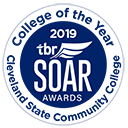Athletic Trainers
Athletic Trainers
29-9091.00
Median wages
$41,240
Evaluate and advise individuals to assist recovery from or avoid athletic-related injuries or illnesses, or maintain peak physical fitness. May provide first aid or emergency care.
- Evaluate athletes' readiness to play and provide participation clearances when necessary and warranted.

- Care for athletic injuries, using physical therapy equipment, techniques, or medication.

- Conduct an initial assessment of an athlete's injury or illness to provide emergency or continued care and to determine whether they should be referred to physicians for definitive diagnosis and treatment.

- Assess and report the progress of recovering athletes to coaches or physicians.

- Perform general administrative tasks, such as keeping records or writing reports.

- Apply protective or injury preventive devices, such as tape, bandages, or braces, to body parts, such as ankles, fingers, or wrists.

- Plan or implement comprehensive athletic injury or illness prevention programs.

- Collaborate with physicians to develop and implement comprehensive rehabilitation programs for athletic injuries.

- Advise athletes on the proper use of equipment.

- Travel with athletic teams to be available at sporting events.

- File athlete insurance claims and communicate with insurance providers.

- Instruct coaches, athletes, parents, medical personnel, or community members in the care and prevention of athletic injuries.

- Accompany injured athletes to hospitals.

- Inspect playing fields to locate any items that could injure players.

- Develop training programs or routines designed to improve athletic performance.

- Recommend special diets to improve athletes' health, increase their stamina, or alter their weight.

- Conduct research or provide instruction on subject matter related to athletic training or sports medicine.

- Confer with coaches to select protective equipment.

- Massage body parts to relieve soreness, strains, or bruises.

- Lead stretching exercises for team members prior to games or practices.

- Teach sports medicine courses to athletic training students.
- Calendar and scheduling software — Scheduling software

- Data base user interface and query software — Digital Coach AthleticTrainer; Injury tracking software; Keffer Development Services Athletic Trainer System ATS; Premier Software Simtrak Mobility

- Electronic mail software — Email software

- Internet browser software — Web browser software

- Medical software — BioEx Systems Exercise Pro; ImPACT

- Office suite software — Microsoft Office

- Presentation software — Microsoft PowerPoint


- Spreadsheet software — Microsoft Excel


- Word processing software — Microsoft Word
- Active Listening — Giving full attention to what other people are saying, taking time to understand the points being made, asking questions as appropriate, and not interrupting at inappropriate times.

- Critical Thinking — Using logic and reasoning to identify the strengths and weaknesses of alternative solutions, conclusions or approaches to problems.

- Monitoring — Monitoring/Assessing performance of yourself, other individuals, or organizations to make improvements or take corrective action.

- Speaking — Talking to others to convey information effectively.

- Active Learning — Understanding the implications of new information for both current and future problem-solving and decision-making.

- Judgment and Decision Making — Considering the relative costs and benefits of potential actions to choose the most appropriate one.

- Service Orientation — Actively looking for ways to help people.

- Social Perceptiveness — Being aware of others' reactions and understanding why they react as they do.

- Writing — Communicating effectively in writing as appropriate for the needs of the audience.

- Instructing — Teaching others how to do something.

- Reading Comprehension — Understanding written sentences and paragraphs in work related documents.

- Coordination — Adjusting actions in relation to others' actions.

- Time Management — Managing one's own time and the time of others.

- Learning Strategies — Selecting and using training/instructional methods and procedures appropriate for the situation when learning or teaching new things.

- Complex Problem Solving — Identifying complex problems and reviewing related information to develop and evaluate options and implement solutions.

- Persuasion — Persuading others to change their minds or behavior.

- Systems Analysis — Determining how a system should work and how changes in conditions, operations, and the environment will affect outcomes.

- Systems Evaluation — Identifying measures or indicators of system performance and the actions needed to improve or correct performance, relative to the goals of the system.










